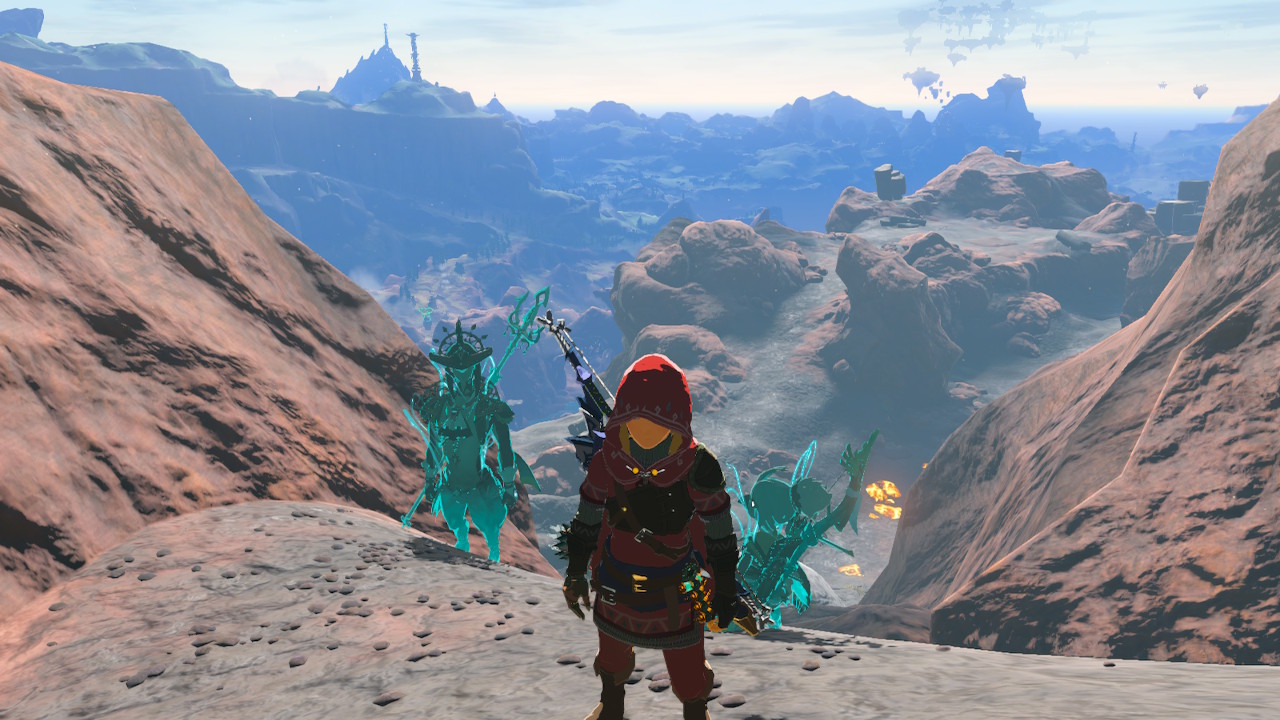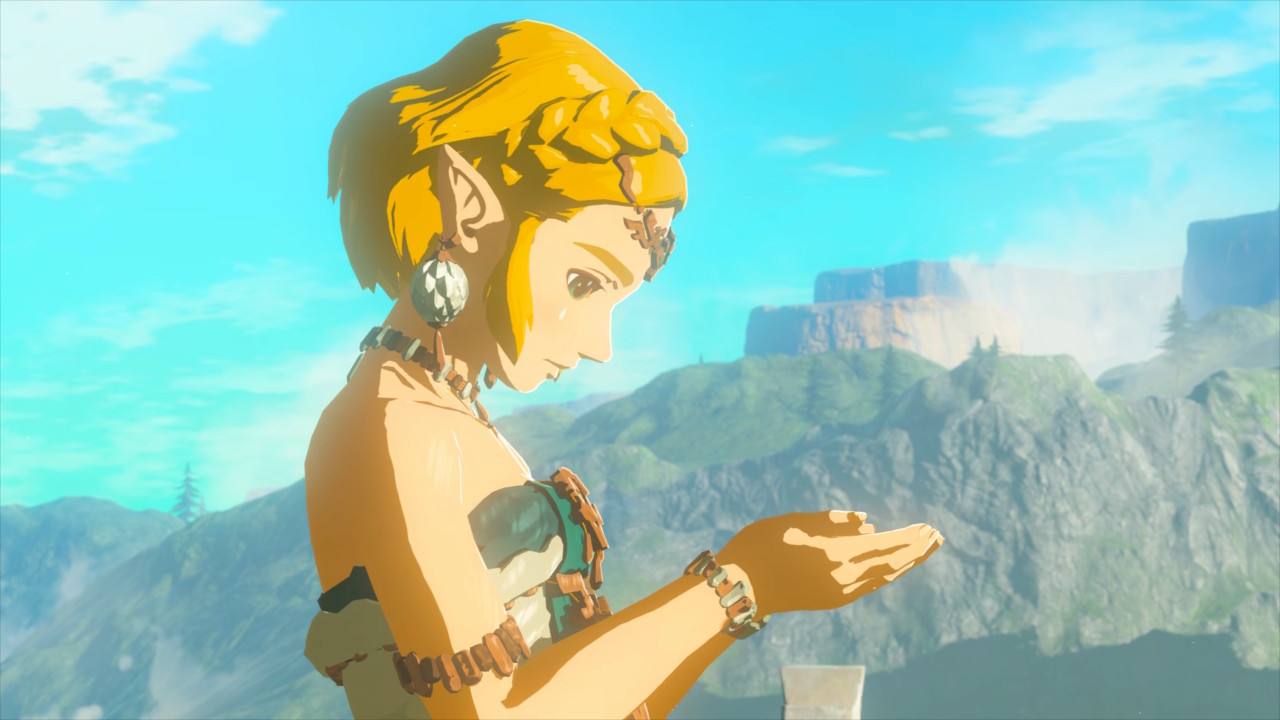I Know This Place : How Tears of the Kingdom Changes Everything About the Zelda Series

A few years ago, while reflecting on the Legend of Zelda games as a series, I wrote:
Zelda absolutely nails the feeling of being a child just before adolescence. These games are all about stepping tentatively onto the threshold of a grown-up world that you don’t understand and don’t necessarily want to.
Critically, though, they never quite cross the threshold. Victory is always about holding onto the status quo for a little bit longer. Ganon is defeated, but we know he’ll return someday. Link becomes a child again. Hyrule stays buried under the ocean. The gateway to the Twilight Realm is closed. Koholint Island vanishes and leaves Link adrift on the sea. We’re back where we started, and we’ll go about our life like before, but we know it’ll never be quite the same.
At the time. that seemed to me to be the core of what makes these games unique. It was a common thread that linked together decades’ worth of entries.
But then along came Tears of the Kingdom, the hotly anticipated and already beloved newest entry in the franchise. As I dove into the game, soaking in the incredible ambience of Hyrule and engaging in mishap after hilarious mishap with the complex new building mechanics, I started to notice that something felt different this time around. I was still having a grand old Zelda time, but the story, characters, and even the act of aimlessly wandering around the huge game world did not stir quite the same emotions as Breath of the Wild, nor any previous installment. Something new was going on here.

And as I thought back to the passage above, it struck me: TOTK is the very first game in the series that does not fit this description. The world has not returned to the status quo. The events of Breath of the Wild changed Hyrule irrevocably, along with everyone who lived in it, and there’s no going back. So the game goes forward instead.
TOTK may be the first true sequel in Zelda’s history. There have been a few nominal sequels, but they didn’t much build upon the actual storyline and characters of the previous games. Link’s Awakening and Majora’s Mask, probably the most prominent examples, technically feature a Link from an earlier game, but both of them take him out of Hyrule completely. They don’t even feature Zelda. This is the first time Nintendo has not only stuck with a single iteration of Hyrule, rather than wiping the slate clean, but they actually continued the story that they’d started. Not just the plot, but the character journeys—of the Hyrulean peoples, of Zelda herself, and even of our enigmatic silent protagonist Link.

The game is constantly emphasizing Link’s place in the world. In Breath of the Wild he was an unknown amnesiac discovering this version of Hyrule for what was to him (and us) the first time. Now, he’s part of the fabric of a broader community. Everywhere he goes, people recognize him, a strange and delightful contrast to the quiet loneliness of BOTW. I don’t recall that ever happening in a Zelda game outside of starting areas like Kokiri Forest and Outset Island—and in those instances, the point was to contrast the cozy environment of Link’s upbriging with the wild and threatening landscape awaiting him when he ventured outside it.
Not here. This Hyrule is Link’s home—all of it. Here, people are actively rebuilding after their lost century under the shadow of the Calamity. They search for Zelda along with Link, decipher ancient writings, attempt to breed the long-lost plants they find. They even build towers all over the kingdom to help Link map the world, and when one has broken down, there’s always someone there trying to fix it. They’re not just standing around in stasis while Link does the hero thing; they act like people with a stake in what’s happening to their world.
The quest to reunite with Zelda is completely different this time, because we know her. We got to see her story and her struggles in the first game, and now we see her journey continue through the memories in the Dragon Tears. She has goals, she faces extraordinary challenges, and more than any Zelda before her, she has agency. When she makes her pivotal choice to protect Hyrule, it’s a devastating moment, because she understands the sacrifice she’s making and she chooses it anyway.

I have never been anywhere close to this emotionally invested in “saving” Zelda—and exactly what that means, in this story’s context, is unusually murky. Can I save her? Does she even want me to save her?
I don’t feel like a little kid setting off for the first time in a big, awe-inspiring, scary world. I feel like…an adult. I’m working with my community as best I can to meet weird new challenges, and I’m not afraid of monsters. I’m not even afraid of dying. What I fear, more than anything else, is that we might lose everything we’ve worked so hard for.
As a longtime fan of the series, I can’t emphasize just how much of a tonal shift this is. For all the discussion about the game, which is lively and ongoing as of this writing (both in the games press and among my friends), I don’t think people have quite caught on to this big change yet. And yet most players seem to sense that something is different. This usually leads to examinations of the openness of the world, the simulation elements of the physics and the crafting, and overall to a focus on the mechanics of gameplay. But Nintendo has done something much grander. After nearly 40 years of crafting the experience of toeing that threshold between childhood and adolescence, they’ve taken us beyond it. They’ve allowed us to grow up.
I don’t know where this leads Zelda from here. I haven’t even reached the end of this game yet. But I can’t wait to see what comes next.
